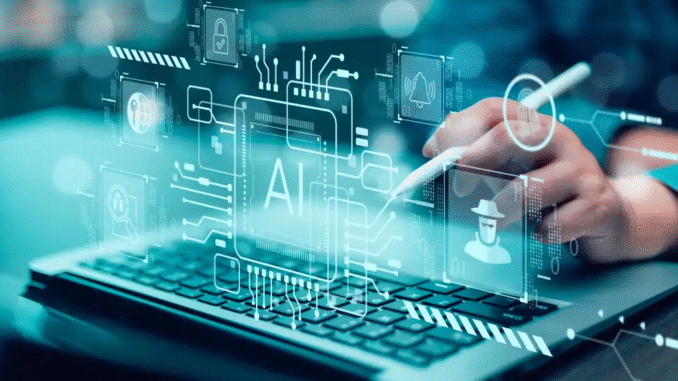
How Artificial Intelligence Is Transforming Everyday Life
Artificial Intelligence (AI) is no longer just a concept from science fiction. It’s now deeply embedded in the fabric of our daily lives—often in ways we don’t even notice. From personalized recommendations on your favorite apps to advanced healthcare diagnostics, AI is reshaping how we live, work, communicate, and make decisions.
In this article, we’ll explore the many ways AI is transforming everyday life and the future it is shaping.
1. AI in Communication: Smarter Interactions
AI-powered tools like voice assistants, smart chatbots, and language translation apps have made communication more efficient and accessible.
- Voice Assistants such as Alexa, Siri, and Google Assistant can answer questions, control smart home devices, and even schedule meetings.
- AI chatbots on websites and messaging platforms help businesses provide instant customer support, reducing wait times.
- Real-time translation services like Google Translate and Skype Translator use AI to break down language barriers in global conversations.
These technologies allow people to communicate more naturally across platforms, languages, and devices.
2. AI in Healthcare: Saving Lives and Time
Healthcare is one of the most transformative sectors when it comes to AI. The technology is being used to diagnose diseases, analyze medical images, and predict patient outcomes with incredible accuracy.
- AI models can detect conditions like cancer, heart disease, and diabetic retinopathy earlier than traditional methods.
- Robotic surgeries, guided by AI, are improving surgical precision and patient recovery times.
- AI-driven apps help monitor chronic conditions, provide mental health support, and remind patients to take medications.
AI is helping doctors make more informed decisions, ultimately improving outcomes and reducing costs.
3. AI in Transportation: Smarter, Safer Travel
From navigation apps to autonomous vehicles, AI is driving a revolution in transportation.
- Apps like Google Maps and Waze use AI to analyze traffic patterns and suggest the fastest routes in real time.
- AI in ride-sharing platforms like Uber and Lyft optimizes driver routes, reduces wait times, and matches passengers efficiently.
- Self-driving technology, pioneered by companies like Tesla and Waymo, is progressing rapidly, promising a future where cars can safely operate without human drivers.
These advancements are making travel faster, safer, and more sustainable.
4. AI in Smart Homes: A New Level of Convenience
AI is at the heart of modern smart home systems, making our homes more energy-efficient, secure, and convenient.
- Smart thermostats like Nest learn your habits and adjust temperatures automatically to save energy.
- Security systems powered by AI can recognize familiar faces, detect intrusions, and send instant alerts to homeowners.
- AI-integrated appliances, such as smart refrigerators and washing machines, optimize their functions based on usage patterns.
As more devices connect to the Internet of Things (IoT), AI will play a central role in managing our living spaces seamlessly.
5. AI in Entertainment: Personalization at Scale
AI is changing how we discover and enjoy entertainment, offering hyper-personalized experiences.
- Streaming platforms like Netflix, YouTube, and Spotify use AI to recommend content based on your viewing or listening history.
- Video game developers use AI to create adaptive, intelligent opponents and richer gaming environments.
- Social media platforms use AI to filter feeds, suggest content, and even detect harmful or misleading information.
Thanks to AI, content is no longer one-size-fits-all—it’s tailored specifically to individual preferences.
6. AI in Education: Custom Learning Experiences
AI is making education more personalized, accessible, and effective.
- Adaptive learning platforms like Khan Academy and Duolingo adjust lessons based on a learner’s pace and performance.
- AI-powered tools can help grade assignments, track progress, and offer real-time feedback to both students and teachers.
- Virtual tutors and chatbots offer 24/7 support, helping learners stay on track regardless of time or location.
AI is making lifelong learning easier by providing resources and support that adapt to individual needs.
7. AI in Finance: Smarter Money Management
From managing personal finances to fraud detection, AI is transforming the financial world.
- Robo-advisors like Betterment and Wealthfront use AI to offer investment advice based on your financial goals and risk tolerance.
- AI algorithms are used in banks to detect fraudulent transactions in real time, enhancing security.
- Smart budgeting apps track spending habits, suggest savings strategies, and even automate bill payments.
AI helps people make more informed and confident financial decisions.
8. AI in Shopping: Redefining Retail
AI is revolutionizing the way we shop, both online and in physical stores.
- E-commerce platforms use AI to recommend products, optimize pricing, and personalize promotions.
- Visual search tools allow shoppers to find items by uploading images instead of typing keywords.
- AI-powered inventory systems help retailers manage stock efficiently and reduce waste.
The result is a more streamlined and customized shopping experience.
9. AI in Employment: Automation and Opportunities
AI is automating repetitive tasks, changing the nature of work, and creating new opportunities.
- In industries like manufacturing, AI-powered robots perform high-precision tasks with speed and consistency.
- In offices, AI tools handle data entry, scheduling, and report generation, freeing up time for more strategic work.
- AI is also helping with recruitment, analyzing resumes and matching candidates to job descriptions.
While some fear job loss due to automation, AI is also driving demand for new roles in tech, analytics, and AI management.
10. AI in Daily Decision-Making
Whether it’s choosing what to wear based on the weather or planning a trip, AI influences our daily decisions.
- Weather apps use AI to deliver more accurate forecasts.
- Calendar apps suggest optimal times for meetings based on availability and preferences.
- AI-powered health apps recommend diets and exercise plans tailored to individual goals and health data.
These subtle integrations improve our efficiency and decision-making without us even realizing it.
Challenges and Ethical Considerations
While the benefits of AI are vast, there are also challenges:
- Data privacy concerns as AI systems collect and process vast amounts of personal information.
- Bias in AI algorithms can reinforce social inequalities if not properly managed.
- Job displacement in certain industries could lead to economic and social disruptions.
It’s essential for governments, businesses, and developers to work together to ensure that AI is used responsibly and ethically.
Conclusion
Artificial Intelligence is no longer a futuristic concept—it’s a present-day reality influencing nearly every aspect of our lives. From how we communicate and learn to how we travel and shop, AI is making life more convenient, personalized, and efficient.
As the technology continues to evolve, the key to success lies in adopting AI mindfully, ensuring ethical practices, and being open to the changes it brings. AI has the power to not only transform daily life but also to improve the world in profound ways—if used wisely.

